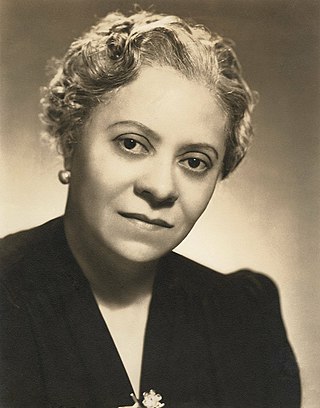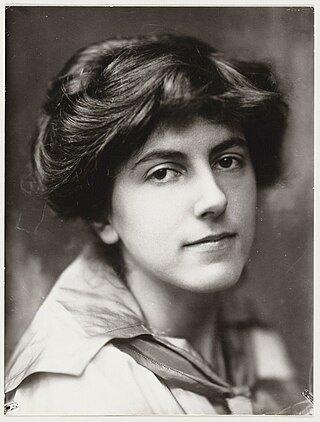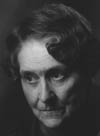Related Research Articles

Ruth Crawford Seeger was an American composer and folk music specialist. Her music was a prominent exponent of the emerging modernist aesthetic and she became a central member of a group of American composers known as the "ultramoderns". Though she composed primarily during the 1920s and 1930s, Seeger turned towards studies on folk music from the late 1930s until her death. Her music influenced later composers, particularly Elliott Carter.

Douglas Stuart Moore was an American composer, songwriter, organist, pianist, conductor, educator, actor, and author. A composer who mainly wrote works with an American subject, his music is generally characterized by lyricism in a popular or conservative style which generally eschewed the more experimental progressive trends of musical modernism. Composer Virgil Thomson described Moore as a neoromantic composer who was influenced by American folk music. While several of his works enjoyed popularity during his lifetime, only his folk opera The Ballad of Baby Doe (1956) has remained well known into the 21st century.
Louise Juliette Talma was an American composer, academic, and pianist. After studies in New York and in France, piano with Isidor Philipp and composition with Nadia Boulanger, she focused on composition from 1935. She taught at the American Conservatory in Fontainebleau, and at Hunter College. Her opera The Alcestiad was the first full-scale opera by an American woman staged in Europe. She was the first women in the National Institute of Arts and Letters and being awarded the Sibelius Medal for Composition.

Florence Beatrice Price was an American classical composer, pianist, organist and music teacher. Born in Little Rock, Arkansas, Price was educated at the New England Conservatory of Music, and was active in Chicago from 1927 until her death in 1953. Price is noted as the first African-American woman to be recognized as a symphonic composer, and the first to have a composition played by a major orchestra. Price composed over 300 works: four symphonies, four concertos, as well as choral works, art songs, chamber music and music for solo instruments. In 2009, a substantial collection of her works and papers was found in her abandoned summer home.
Nadine Dana Suesse was an American musician, composer and lyricist.

Margaret Allison Bonds was an American composer, pianist, arranger, and teacher. One of the first Black composers and performers to gain recognition in the United States, she is best remembered today for her popular arrangements of African-American spirituals and frequent collaborations with Langston Hughes.

Henriëtte Hilda Bosmans was a Dutch composer and pianist.
Mary Howe was an American composer and pianist.

Katherine Kennicott Davis was an American composer, pianist, arranger, and teacher, whose most well-known composition is the Christmas song "Carol of the Drum," later known as "The Little Drummer Boy".

Irene Higginbotham was an American songwriter and concert pianist. She is best known for co-writing the Billie Holiday song "Good Morning Heartache" (1946).

Idabelle Smith Firestone was an American composer and songwriter.

Anne-Marie Ørbeck was a Norwegian pianist and composer.
Clara Edwards was an American singer, pianist, and composer of art songs. She also used the pseudonym Bernard Haigh.
Helen Sinclair Glatz was an English composer and pianist, a pupil of Ralph Vaughan Williams, best known for her teaching at Dartington Hall and the Dartington International Summer School for over 40 years.

Emilie Marie Baroness von Bach (1896–1978) was an Austrian pianist, violinist, composer and artist.
Maria Semyonovna Zavalishina was a Soviet composer and teacher.
Lola Carrier Worrell was an American composer who wrote instrumental music, songs, and at least one piece for musical theatre. Born in St. Johns, Michigan, she studied music with Carlos Sobimo, Francis Hendricks and Horace E Tureman. Lola married Edward S Worrell Jr. on January 12, 1891, and they had three daughters. The family maintained homes in New York and Colorado, where Lola founded the Denver American Music Society and served as its first president. She also organized and served as the pianist for the Chamber Music Quintet of Denver. Along with other musicians such as Caroline Holme Walker, Lola maintained a studio at Brinton Terrace in Denver, where she coached pianists, singers, and young composers. She gave recitals with contralto Louis Merten, whom she accompanied on piano. In addition to her work as a musician, Lola filed patents for dolls she developed in 1922, 1924, and 1925. The 1925 patent application described the doll as a "flapper doll." Her compositions included:
Helen L. Weiss was an American composer, pianist and choir director.
Tamara Stepanovna Maliukova Sidorenko was a Ukrainian composer, music educator and pianist.
Tamara Antonovna Shaverzashvili was a Georgian composer, pianist, and teacher who composed many children's songs and received an Honored Worker in Art award. She published her music under the name Tamara Shaverzashvili.
References
- ↑ McVicker, M. F. (2016). Women Opera Composers: Biographies from the 1500s to the 21st Century. USA: McFarland Incorporated. pp. 161–162. ISBN 9780786495139 . Retrieved 10 May 2020.
- ↑ Hennessee, D. A.; Hixon, D. L. (1993). Women in Music: An Encyclopedic Biobibliography. United Kingdom: Scarecrow Press. p. 1198. ISBN 9780810827691 . Retrieved 10 May 2020.
- ↑ Cohen, Aaron I. (1987). International Encyclopedia of Women Composer (second ed.). USA: Books & Music. p. 778. ISBN 0961748516 . Retrieved 10 May 2020.